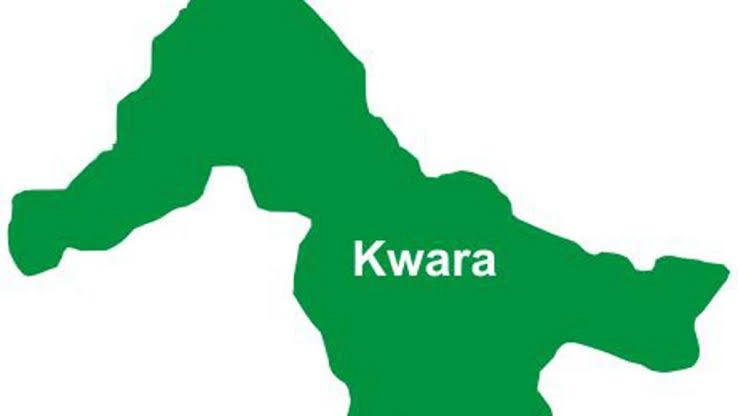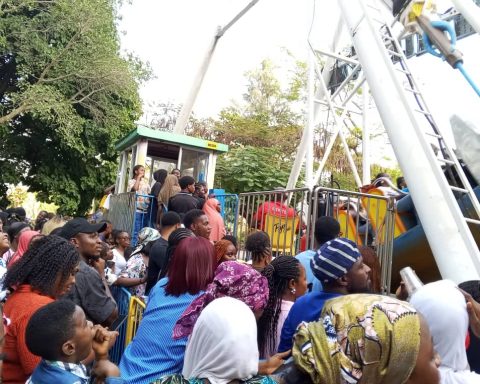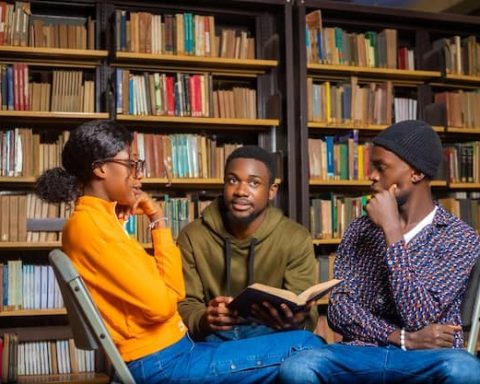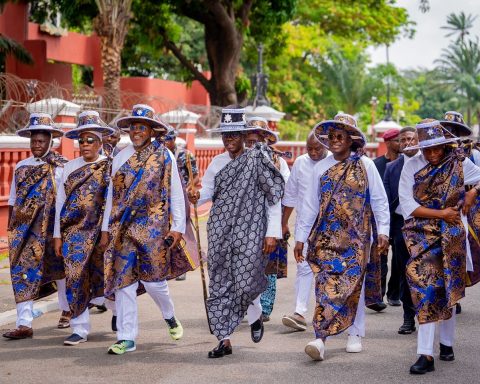As September drew to a close, a tragic incident reminded Nigerians that no one is truly safe. Gunmen ambushed a group of forest guards in Kwara State, killing at least 12 individuals. The attack occurred in Oke-Ode (Ifelodun LGA) and Tsaragi (Edu LGA).
At least four members of the same group were also abducted. Mobile footage circulating online showed the bodies of the slain guards lying on the roadside, a chilling reflection of the human cost when communities are left to defend themselves.
Join our WhatsApp Channel
Notably, reports indicated the attack occurred despite early warnings from residents and community leaders to government security agencies about unusual movements in the area. These warnings went unheeded, a stark illustration of how governance failures can turn preventable threats into deadly tragedies. That is why many communities continue to lament the government’s negligence, with some alleging complicity.
However, this tragedy is far from isolated. Across Africa, violence keeps resurfacing, from Nigeria’s rural communities to Sudan’s battered towns and Niger’s tense streets. All indicated leaders who hoard power, institutions that look away, and citizens excluded from decisions that shape their lives.
Nigeria Security Landscape
Nigeria’s security landscape has become increasingly fragile, marked by rural violence, banditry, and frequent abductions.
Clashes involving Fulani herders and farmers have left scores dead, while intercommunal and religious tensions occasionally escalate into what some observers describe as localized genocidal violence.
Since May 2023, Nigeria has witnessed a significant escalation in violence in addition to what it experienced under the former administration.
In 2024, the country faced numerous killings and kidnappings, with various sources reporting persistent insecurity across multiple regions.
While the National Bureau of Statistics (NBS) claimed that over 614,000 Nigerians were killed between May 2023 and April 2024, this figure has been met with skepticism due to concerns about data credibility.
Key incidents during 2024 included the Tarmuwa Massacre in September, where over 50 militants killed 130 villagers in Yobe State; the Edo State massacre in March, in which a mob killed 16 individuals suspected of being kidnappers in Uromi; Kaduna State abductions in March, with at least 87 people kidnapped in Kajuru Station; and the Yargoje attack in June, where gunmen killed at least 50 villagers in Katsina State.
The trend continued into 2025. In January, Amnesty International reported over 500 kidnappings, mostly in northern regions. February saw 241 people kidnapped across 20 states, including the Federal Capital Territory.
In March, the North West recorded 114 incidents resulting in 400 deaths, while the North Central experienced 100 incidents with 367 fatalities. April witnessed twin attacks in Benue State by suspected nomadic cattle herders, leaving at least 56 dead.
In May, armed groups killed 95 people and abducted 68 across the country. June included President Tinubu’s visit to Benue State, where he questioned why repeated perpetrators had not been arrested.
Report showed that at least 10,000 people had been killed in attacks across Benue, Edo, Katsina, Kebbi, Plateau, Sokoto, and Zamfara since the government assumed office.
In August, reports documented rampant human rights violations and serious crimes under domestic law in South-East Nigeria.
President Tinubu’s visit to Benue State in June, following the deaths of more than 200 people, reflected the anger and frustration of ordinary citizens, as he pressed for answers on why those responsible for repeated attacks had not been apprehended.
Yet, the visit underscored a growing perception that leadership is more performative than effective, with promises made but seldom fulfilled.
Last month, rumours circulated that the government was attempting peace talks with the very terrorists responsible for so many deaths.
The Human Rights Writers Association of Nigeria (HURIWA) publicly condemned such negotiations, stating that they undermine the nation’s integrity and sovereignty. Another report highlighted that a peace agreement between Kaduna State Governor Uba Sani and armed bandit-terrorists had backfired, leading to increased attacks and kidnappings in the region.
These developments have sparked widespread criticism and debate about the government’s approach to handling terrorism and banditry. While no official peace talks have been confirmed, the public’s perception of such negotiations raises serious concerns about the effectiveness and integrity of national security strategies.
READ ALSO: Bandits Sack Oke-Ode Yoruba Community In Kwara, North-Central Nigeria
Why 4,700 Mining Licences Were Revoked – Nigerian Govt
Corruption has compounded these failures. The diversion of public funds by officials, often in full view of citizens, has further undermined state legitimacy. When young people witness leaders misappropriating resources meant for development, it fuels a sense of injustice and can push some into carrying arms themselves.
Poor education exacerbates the problem, as children are denied access to moral and civic lessons that might otherwise discourage violence and foster social responsibility.
The situation in Nigeria even mirrors broader governance challenges across Africa. In Sudan, Niger, and other regions, weak institutions, unaccountable leadership, and exclusionary politics have allowed grievances to fester and violence to spread.
Evidently, across the continent, poor governance is a root cause of insecurity, demonstrating that these crises are not inevitable but are driven by systemic failures.
What Effective Governance Will Look Like
Leadership has too often hoarded power, ignored early warnings, and evaded accountability, sending a message that citizen safety is secondary.
Institutions charged with protecting communities remain weak, slow to respond, and poorly coordinated, leaving ordinary people exposed to attacks. While citizens are frequently excluded from decisions that directly affect their security, eroding trust and leaving grievances unresolved.
The cumulative effect is predictable: manageable tensions spiral into deadly conflicts, as communities resort to self-protection in the absence of reliable state intervention.
Effective governance requires leadership that is responsive and accountable, willing to act decisively to protect citizens. Institutions must be inclusive, transparent, and coordinated, ensuring that early-warning systems are taken seriously and acted upon promptly.
Security agencies and community policing units need proper funding, training, and resources to respond efficiently to threats. Most importantly, the state must build public trust by demonstrating that it protects communities rather than abandoning them, showing citizens that their safety and well-being are a genuine priority.
Africa’s conflicts are not inevitable; they are preventable through meaningful governance reforms. Governments must prioritise citizen safety, strengthen institutions, and uphold the rule of law. Only through accountable leadership and effective governance can cycles of violence be broken, communities rebuilt, and sustainable peace achieved.
Dr Mbamalu, a Jefferson Fellow (East-West Centre, Hawaii, United States), is the publisher of Prime Business Africa
Dr. Marcel Mbamalu is a distinguished communication scholar, journalist, and entrepreneur with three decades of experience in the media industry. He holds a Ph.D. in Mass Communication from the University of Nigeria, Nsukka, and serves as the publisher of Prime Business Africa, a renowned multimedia news platform catering to Nigeria and Africa's socio-economic needs.
Dr. Mbamalu's journalism career spans over two decades, during which he honed his skills at The Guardian Newspaper, rising to the position of senior editor. Notably, between 2018 and 2023, he collaborated with the World Health Organization (WHO) in Northeast Nigeria, training senior journalists on conflict reporting and health journalism.
Dr. Mbamalu's expertise has earned him international recognition. He was the sole African representative at the 2023 Jefferson Fellowship program, participating in a study tour of the United States and Asia (Japan and Hong Kong) on inclusion, income gaps, and migration issues.
In 2020, he was part of a global media team that covered the United States presidential election.
Dr. Mbamalu has attended prestigious media trainings, including the Bloomberg Financial Journalism Training and the Reuters/AfDB Training on "Effective Coverage of Infrastructural Development in Africa."
As a columnist for The Punch Newspaper, with insightful articles published in other prominent Nigerian dailies, including ThisDay, Leadership, The Sun, and The Guardian, Dr. Mbamalu regularly provides in-depth analysis on socio-political and economic issues.













